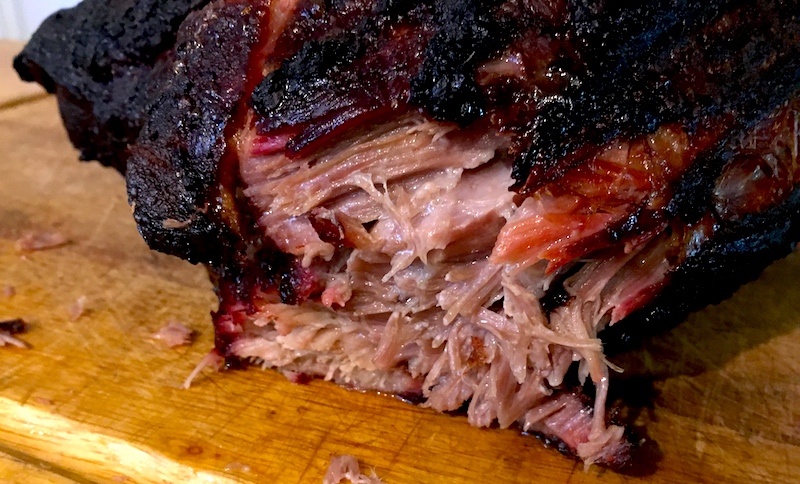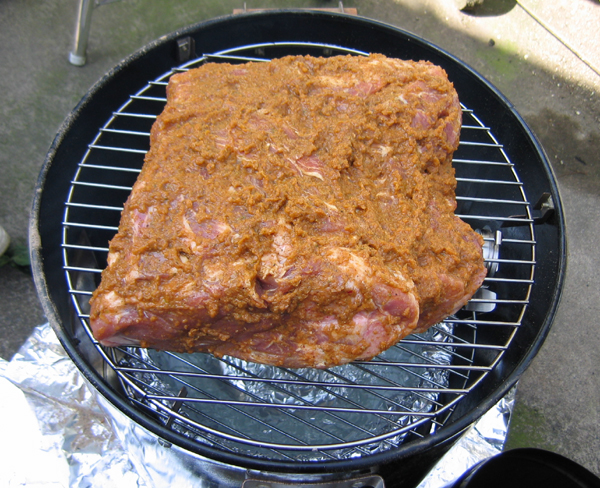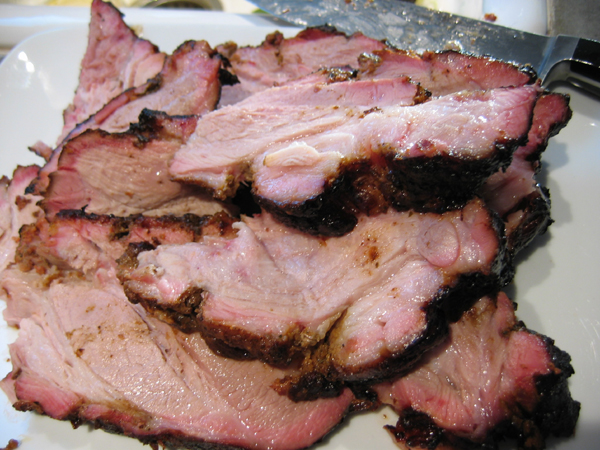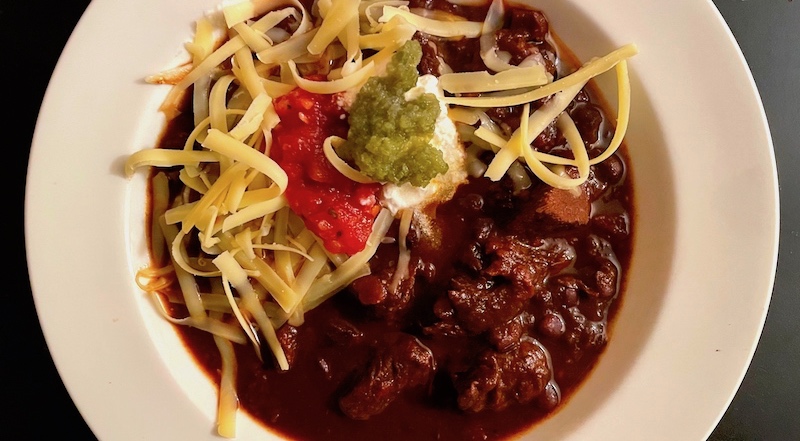
Epic Black Bean Chili Fit for a Crowd
Oregon is so incredibly fortunate to have an abundance of pasture-based farms that are focused on animal welfare and the hard work of improving their soil.
There's Chris and Zack Menchini's Campfire Farms in Canby, Michael and Linda Guebert's Terra Farma in Corbett, Ryan Ramage and his family at Ramage Farms in Canby, Jared Gardner's Nehalem River Ranch at the coast, and in the snow-covered mountains and wheat fields of Eastern Oregon you'll find Cory Carman's Carman Ranch and Liza Jane McAlister, matriarch of 6 Ranch—whose tagline "Doing it the hard way since 1884" has this former ad person swooning—among dozens more. (Find where to get the products from local farms and ranches that have adopted pasture-based methods in the invaluable Oregon Pasture Network Guide.)

If you follow any of these folks on social media or sign up for their newsletters like I have, you'll find that they'll occasionally post special offerings when they need to make room in their freezers or have extra stock (no pun intended) available. So when I run across a screaming deal on Carman Ranch ground beef or see that Campfire Farms is offering a box of assorted sausages and pasture-raised chicken breasts for a (relative) song, I jump on it.
That was the case when Ryan Ramage posted a photo of a box of beef chuck roasts and short ribs for close to half off the regular price. It did necessitate driving to Oregon City for a not-so-clandestine meetup at Tony's Smoke House and Cannery where Ryan was making a delivery, but he graciously plopped the box in the boot of the Subie and I handed him a check. Done!
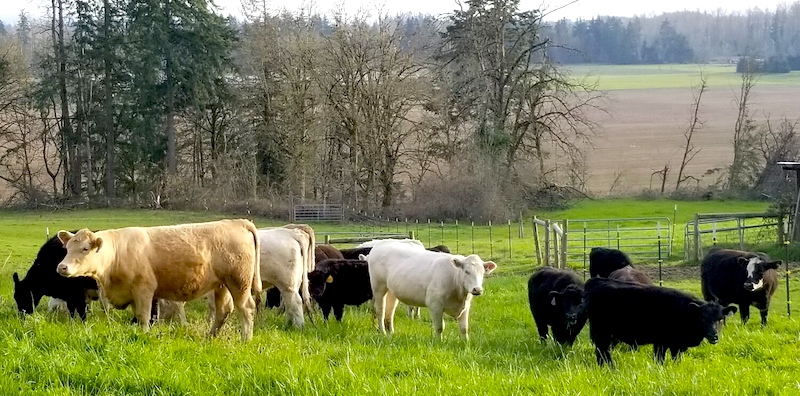
One of the chuck roasts was left out to thaw in a tub of cool water and I started the quest for a chili recipe that would assuage my craving for a chile-laced black bean version. Having belatedly stumbled across the amazing collection of videos and recipes of Pati Jinich, a superb cook and passionate activist for authentic Mexican culture and cuisine—watch her moving interview with Mayan women who formed a baseball team and are now national stars—I found a recipe for braised pork with chiles used as a filling to make pork chilorio burritas.
With apologies to Ms. Jinich, I substituted beef for the pork and added some of my roasted tomatoes and black beans to the ingredients. The result was magical. I hope you check out her videos and enjoy this bowl of delicious pastured beef and bean chili!
Epic Beef and Black Bean Chili
Adapted from a Pati Jinich recipe for pork chilorio burritas.
1 lb. dried black beans
3-4 lbs. pastured beef chuck roast, cut in 1" cubes
1 1/4 c. fresh-squeezed orange juice
1 1/4 c. water
1 tsp. kosher or sea salt
5 dried ancho chiles, tops and seeds removed
1 1/2 c. of the chile soaking liquid
1/2 c. onion, roughly chopped
4 cloves garlic
1 tsp. dried oregano
1/4 tsp. ground cumin
1/4 tsp. ground black pepper
2/3 c. cider vinegar
2 c. roasted tomatoes
3 Tbsp. vegetable oil
1/4 tsp. salt plus more to taste
Condiments (optional): Grated cheddar or crumbled cotija, sliced avocados, shredded cabbage, sour cream (crema), sliced jalapeños, red pepper flakes, hot sauce(s)
The evening before serving, soak the beans by placing them in a large saucepan and cover with water by two inches. Put a lid on the pot and place on the counter or the back burner of the stove to soak (unheated) overnight.
At least three hours before serving, drain the beans and set aside.
Place meat in a Dutch oven or large pot and pour orange juice and water over it. The liquid should barely cover the meat—if it does not, simply add more water. Add a teaspoon of salt and bring to a boil, then cover and turn down the heat to simmer for 60 to 90 minutes, until much of the liquid is gone. The meat should be cooked but still retain its shape. so once the meat is cooked, pour it into a large bowl and set aside.
While the meat cooks, remove the stems and seeds from the ancho chiles, tearing them into large pieces. (You may want to wear gloves for this step if you're sensitive to their oils.) Place the pieces of the chiles in a heatproof bowl and cover them with boiling water, letting them steep for about 30 minutes. Once the chiles have rehydrated and cooled, place them and 1 1/2 cups of their soaking liquid in the blender, adding the onion, garlic, parsley, oregano, cumin, black pepper, vinegar, and roasted tomatoes. Purée on high until smooth.
Take the pot that you cooked the meat in and heat the vegetable oil over medium heat. Pour in the blended chile sauce and simmer 4 to 5 minutes. Add the meat with its cooking liquid and the soaked, drained beans to the sauce in the pot. Add 1/4 teaspoon salt and let it cook, stirring occasionally, until the beans are tender but not mushy, 45 minutes to an hour. Taste for salt and add more if need be.
Serve as is or with a panoply of condiments as suggested above.
Read more about Terra Farma; Carman Ranch; and Nehalem River Ranch.
